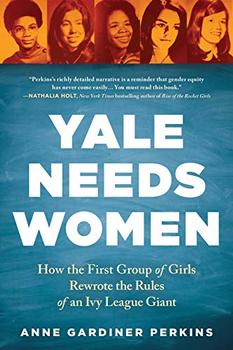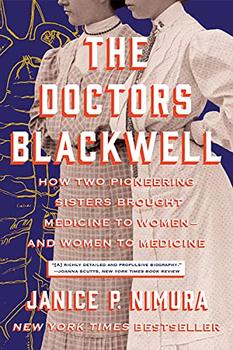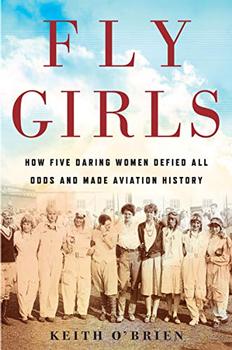Summary | Excerpt | Reading Guide | Discuss | Reviews | Beyond the book | Read-Alikes | Genres & Themes | Author Bio

How the First Group of Girls Rewrote the Rules of an Ivy League Giant
by Anne Gardiner Perkins"If Yale was going to keep its standing as one of the top two or three colleges in the nation, the availability of women was an amenity it could no longer do without."
In the summer of 1969, from big cities to small towns, young women across the country sent in applications to Yale University for the first time. The Ivy League institution dedicated to graduating "one thousand male leaders" each year had finally decided to open its doors to the nation's top female students. The landmark decision was a huge step forward for women's equality in education.
Or was it?
The experience the first undergraduate women found when they stepped onto Yale's imposing campus was not the same one their male peers enjoyed. Isolated from one another, singled out as oddities and sexual objects, and barred from many of the privileges an elite education was supposed to offer, many of the first girls found themselves immersed in an overwhelmingly male culture they were unprepared to face. Yale Needs Women is the story of how these young women fought against the backward-leaning traditions of a centuries-old institution and created the opportunities that would carry them into the future. Anne Gardiner Perkins's unflinching account of a group of young women striving for change is an inspiring story of strength, resilience, and courage that continues to resonate today.
The rich stories of the women are wound nicely together around the events that were happening at the time, including the Black Panther trial and Vietnam War protests (Kara M). I think this book is a must-read for those interested in the evolution of university coeducation, as well as women's rights. We must study history, not ignore or destroy it, in order to learn how to better ourselves for the future (Liz B)...continued
Full Review
 (720 words)
(720 words)
(Reviewed by First Impressions Reviewers).
 In Yale Needs Women, author Anne Gardiner Perkins explores the circumstances surrounding Yale University's decision to go coed in 1969, and the experiences of its first female students. Yale's change in policy was hardly revolutionary, as some colleges and universities in the U.S. had been coed since the 19th century.
In Yale Needs Women, author Anne Gardiner Perkins explores the circumstances surrounding Yale University's decision to go coed in 1969, and the experiences of its first female students. Yale's change in policy was hardly revolutionary, as some colleges and universities in the U.S. had been coed since the 19th century.
Oberlin College in Ohio was the first higher learning institution to admit women in the United States. The college opened in 1833, permitted Blacks to apply in 1835, and became coed in 1837 with the admission of four female students. Three of the four graduated with a Bachelor of Arts in 1841. The fourth, Mary Kellogg, had to drop out because she could no longer afford the tuition, but later returned to finish after she was...

If you liked Yale Needs Women, try these:

by Janice P. Nimura
Published 2022
Elizabeth Blackwell believed from an early age that she was destined for a mission beyond the scope of "ordinary" womanhood.

by Keith O'Brien
Published 2019
The untold story of five women who fought to compete against men in the high-stakes national air races of the 1920s and 1930s — and won.